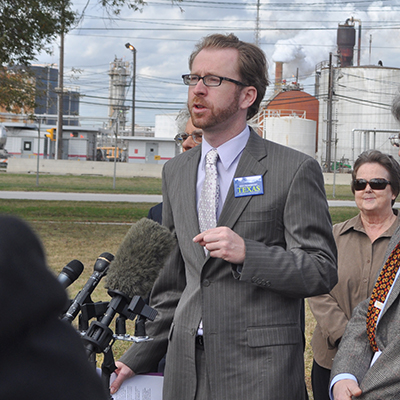
El Paso Rate Change Proposal Discriminates Against Solar Users
On May 19th, the PUCT sent El Paso Electric’s bid to increase utility rates back down to administrative law judges after determining that El Paso Electric did not provide adequate notice of their rate increase to residential solar customers under Texas law. Earlier this year, El Paso Electric (EPE) and the City of El Paso had reached a settlement on a $37 million rate increase to fund the public utility’s infrastructure improvements. EPE executives claim this deal represents the best interests of the utility and its customers, but some customers are being hit harder than others.
Solar energy users in El Paso can breathe a temporary sigh of relief thanks to the Public Utility Commission of Texas (PUCT). On May 19th, the PUCT sent El Paso Electric’s bid to increase utility rates back down to administrative law judges after determining that El Paso Electric did not provide adequate notice of their rate increase to residential solar customers under Texas law. Earlier this year, El Paso Electric (EPE) and the City of El Paso had reached a settlement on a $37 million rate increase to fund the public utility’s infrastructure improvements. EPE executives claim this deal represents the best interests of the utility and its customers, but some customers are being hit harder than others. El Paso citizens who installed solar panels on their rooftops after August 20th, 2015 would be hit with a surcharge of up to $11 a month, nearly double the increase in the average residential customer’s electric bill under the settlement.
The PUCT’s approval of the settlement is the final step in the process, and their decision to send the case back down and order the EPE to re-issue notice of their proposed rate increase to customers could significantly delay a final decision.
Several groups and individuals have made their voices heard about EPE imposing this discriminatory surcharge on solar customers, including the four intervening groups that objected to the settlement – Eco El Paso, the Office of the Public Utility Counsel, the Energy Freedom Coalition of America, and Sunrun Corporation. State Senator José Rodríguez has also spoken out, pointing out that because most solar customers’ average monthly savings are less than $10, imposing higher rates on solar users essentially eliminates the financial incentive to use it. This is a blow not only to solar customers but the solar industry, which 79% of Americans support, as it not only produces clean energy, but provides jobs (over 35,000 jobs were added last year). El Paso solar installers have already seen a drop in sales due to the proposed surcharge.
The El Paso case is by no means an isolated incident. Surcharges on solar are a common theme throughout the country, as utilities and fossil fuel interests are fighting to slow the progress of solar energy. This anti-solar pushback has led to devastating consequences for the industry in other states such as Arizona, where the Salt River Project’s outrageous $50 solar fee led to a 96% drop in solar applications in its territory.
Although the ruling has been delayed for now, a decision on the future of the case should be coming out in mid-June. The PUCT ruling and the precedent it will set for future solar rates cannot be taken lightly. The outcomes of these solar energy battles determine how rapidly our cities and the rest of the nation can reap the benefits of the solar revolution. Research shows that energy policies such as providing incentive for solar power is a necessary prerequisite for growth in solar energy, and if the PUCT approves the EPE’s proposal, El Paso will face a huge setback in solar.
We certainly hope that the PUCT will make the right decision and stand up for the many benefits that solar has to offer to El Paso, and by extension, the state of Texas.
Authors
Luke Metzger
Executive Director, Environment Texas
As the executive director of Environment Texas, Luke is a leading voice in the state for clean air and water, parks and wildlife, and a livable climate. Luke recently led the successful campaign to get the Texas Legislature and voters to invest $1 billion to buy land for new state parks. He also helped win permanent protection for the Christmas Mountains of Big Bend; helped compel Exxon, Shell and Chevron Phillips to cut air pollution at four Texas refineries and chemical plants; and got the Austin and Houston school districts to install filters on water fountains to protect children from lead in drinking water. The San Antonio Current has called Luke "long one of the most energetic and dedicated defenders of environmental issues in the state." He has been named one of the "Top Lobbyists for Causes" by Capitol Inside, received the President's Award from the Texas Recreation and Parks Society for his work to protect Texas parks. He is a board member of the Clean Air Force of Central Texas and an advisory board member of the Texas Tech University Masters of Public Administration program. Luke, his wife, son and daughters are working to visit every state park in Texas.
